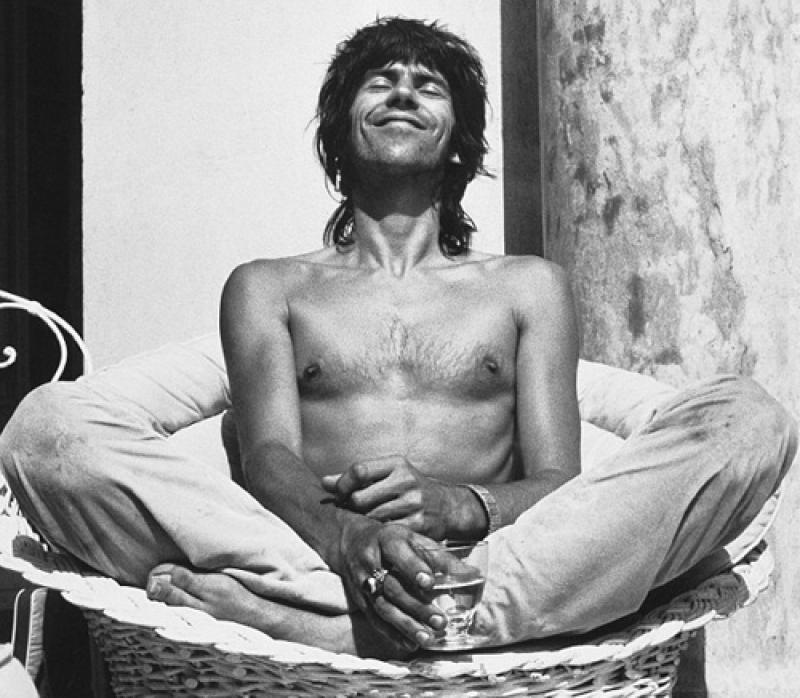Exile on Main Street | reviews, news & interviews
Exile on Main Street
Exile on Main Street
Rediscovered additional tracks fail to improve the Stones' masterpiece. How surprising!

The Rolling Stones' Exile on Main Street is such a quintessential rock epic that it ought to be added to the list of things they throw in for free on Desert Island Discs. Defying the old adage that all double albums would be vastly improved by being boiled down into a single one, Exile is such an astounding feast of blues, gospel, boogie, country and flat-out rock that it feels as if it ought to have been a triple album instead.
However, spinning through the "new" tracks, another ancient adage springs to mind, which is, "If it ain't broke, don't fix it". The mythic voodoo surrounding the creation of Exile is so powerful, with its strange tales of debauchery and outlaw living on the French Riviera amid a blizzard of cocaine and opiates from several continents, that it was never going to be possible to prise it open again and make retrospective modifications. The album flies in all its ragged glory over a poignant moment in the history of the Stones, after they'd been forced to leave England by harassment from the police and the tax authorities. It was goodbye to that Stones-in-London era of Mick and Keith living in Cheyne Walk and the band playing in Hyde Park, and hello to the international high-life Stones, a transformation epitomised by Mick Jagger's celeb-studded wedding to Bianca Perez Moreno de Macias (from Nicaragua) in St Tropez in 1971. Exile, whose basic tracks were recorded in the dank basement of Keith Richards' rented villa in Villefranche-sur-Mer, felt like Keith's angry riposte to Jagger's growing infatuation with Eurotrash and minor royalty, a primitive howl from Route 66 and the Mississippi delta.
 The Stones never sounded like this before or since, and most of the extra tracks on the reissue don't either. Mick Jagger has described how much of the material has been rebuilt or tarted up in the recording studio, so they're wrapped in a 21st-century sheen which instantly sets them apart from the enigmatic sonic murk which enshrouded the original album. "So Divine (Aladdin Story)" has a guitar figure nicked from "Paint it Black", then meanders off into a vaguely Middle-Eastern groove over which Jagger sneers at some luckless female acquaintance ("I've got better things to do than be your slave"). Jagger claims that "Plundered my Soul" and "Following the River" were pretty much intact and needed little work, but they feel as if they've arrived from some anonymous clearing house of Stones material of no fixed identity. "Following the River", in particular, is so syrupy and overwrought that they should have palmed it off on Celine Dion.
The Stones never sounded like this before or since, and most of the extra tracks on the reissue don't either. Mick Jagger has described how much of the material has been rebuilt or tarted up in the recording studio, so they're wrapped in a 21st-century sheen which instantly sets them apart from the enigmatic sonic murk which enshrouded the original album. "So Divine (Aladdin Story)" has a guitar figure nicked from "Paint it Black", then meanders off into a vaguely Middle-Eastern groove over which Jagger sneers at some luckless female acquaintance ("I've got better things to do than be your slave"). Jagger claims that "Plundered my Soul" and "Following the River" were pretty much intact and needed little work, but they feel as if they've arrived from some anonymous clearing house of Stones material of no fixed identity. "Following the River", in particular, is so syrupy and overwrought that they should have palmed it off on Celine Dion.
Of most interest are the alternative versions of original Exile tracks. The swinging, raunchy take of "Loving Cup" has a muscular heft to it which might have made it a viable contender for the album. "Soul Survivor", on the other hand, has a largely intact backing track but a nonsensical droning vocal by Keith, which was presumably just a rough guide for Jagger to replace afterwards. And "Good Time Woman" was an early version of "Tumbling Dice" before they slowed it down, added Keith's sublime guitar intro and wallpapered it with gospel singers.
It's intriguing stuff if you're a Stones fan, but it isn't going to change your opinion of Exile on Main Street. Jagger's mercantile brain has been at work, since this Exile-plus neatly coincides with Stephen Kijak's new documentary, Stones in Exile, while Radio Two broadcasts Exile of the Stones on Wednesday 19 May. As usual, Keith Richards purports to wash his hands of such disreputable considerations. "My point of view on the new stuff is that I didn't want to repaint the smile on the Mona Lisa," he deadpanned.
Share this article
The future of Arts Journalism
You can stop theartsdesk.com closing!
We urgently need financing to survive. Our fundraising drive has thus far raised £33,000 but we need to reach £100,000 or we will be forced to close. Please contribute here: https://gofund.me/c3f6033d
And if you can forward this information to anyone who might assist, we’d be grateful.

Subscribe to theartsdesk.com
Thank you for continuing to read our work on theartsdesk.com. For unlimited access to every article in its entirety, including our archive of more than 15,000 pieces, we're asking for £5 per month or £40 per year. We feel it's a very good deal, and hope you do too.
To take a subscription now simply click here.
And if you're looking for that extra gift for a friend or family member, why not treat them to a theartsdesk.com gift subscription?
more New music
 Music Reissues Weekly: Diggin' For Gold Volume 14 - Norway's Sixties beat-group scene
Welcome overview of neglected musical territory
Music Reissues Weekly: Diggin' For Gold Volume 14 - Norway's Sixties beat-group scene
Welcome overview of neglected musical territory
 Album: Heather Nova - Breath and Air
A mellower, acoustic sound that contemplates life's rhythms
Album: Heather Nova - Breath and Air
A mellower, acoustic sound that contemplates life's rhythms
 Album: Panda Bear - Sinister Grift
A psychedelic curiosity that’s unlikely to wear anyone’s stylus down
Album: Panda Bear - Sinister Grift
A psychedelic curiosity that’s unlikely to wear anyone’s stylus down
 Album: Sam Fender - People Watching
The North Shields indie star's third album is a solid, sincere evolution
Album: Sam Fender - People Watching
The North Shields indie star's third album is a solid, sincere evolution
 Album: Basia Bulat - Basia's Palace
Canadian singer's seventh album musters dreamy pop that simultaneously arrives and floats away
Album: Basia Bulat - Basia's Palace
Canadian singer's seventh album musters dreamy pop that simultaneously arrives and floats away
 Josienne Clarke, Across the Evening Sky, Kings Place review - celebrating Sandy Denny
The contemporary singer-songwriter holds a torch for the late, great Sandy Denny
Josienne Clarke, Across the Evening Sky, Kings Place review - celebrating Sandy Denny
The contemporary singer-songwriter holds a torch for the late, great Sandy Denny
 Patrick Duff, The Mount Without, Bristol review - sacred music for the soul
A dilapidated Bristol church brought back to vibrant life
Patrick Duff, The Mount Without, Bristol review - sacred music for the soul
A dilapidated Bristol church brought back to vibrant life
 Album: Tim Hecker - Shards
Finessed expressiveness as a compilation of soundtrack work coheres
Album: Tim Hecker - Shards
Finessed expressiveness as a compilation of soundtrack work coheres
 Music Reissues Weekly: Sharks - Car Crash Supergroup
The early Seventies blues rockers admired by prime movers in British punk
Music Reissues Weekly: Sharks - Car Crash Supergroup
The early Seventies blues rockers admired by prime movers in British punk
 Fat Dog, Chalk, Brighton review - a frenetic techno-rock juggernaut
The rising London outfit deliver a sweaty Cossack-rave hoedown
Fat Dog, Chalk, Brighton review - a frenetic techno-rock juggernaut
The rising London outfit deliver a sweaty Cossack-rave hoedown
 Album: Park Jiha - All Living Things
Music and nature in synergy
Album: Park Jiha - All Living Things
Music and nature in synergy
 Album: Rizzle Kicks - Competition Is For Losers
Brass, beats, and pure fun: the UK has missed this
Album: Rizzle Kicks - Competition Is For Losers
Brass, beats, and pure fun: the UK has missed this

Add comment